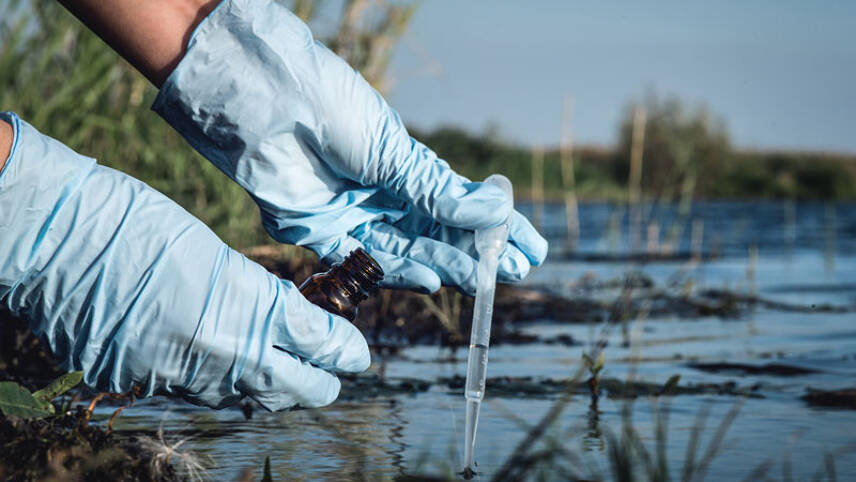Register for free and continue reading
Join our growing army of changemakers and get unlimited access to our premium content

Negotiations on the European Commission’s proposal to crack down on environmental crime, tabled in December 2021, concluded on Thursday evening (16 November) with an agreement between the European Parliament and EU countries.
“For too long criminals have profited from weak sanctions and lack of enforcement,” said the EU’s Environment Commissioner Virginijus Sinkevičius. “With this strengthened law, the EU steps up its action,” he added in a statement.
The agreed law will be formally approved by Parliament in February 2024, with EU countries expected to rubber-stamp it soon after.
“If you pollute, you will pay for your crimes,” said the Parliament’s chief negotiator Antonius Manders, a German lawmaker from the centre-right European People’s Party (EPP).
Fighting pollution, which is often cross-border, requires “harmonised, dissuasive and effective sanctions to prevent new environmental crimes” at the EU level, Manders said.
The new rules could result in a 10-year prison sentence for individuals or company representatives who commit “environmental offences” leading to death. “Qualified” offences could lead to an eight-year prison term, with other offences capped at five years.
Fines could be much more painful, too. Aside from the loss of operating licences and public subsidies, offending companies could be fined up to 5% of their global turnover.
A loophole was added here, though, as EU countries will be able to choose a penalty rate ranging from 3 to 5% and opt for less painful fixed fines of €24-40 million.
While penalties will not be fully harmonised, the definition of what constitutes environmental crime will be. For instance, newly covered offences will include the marketing of products linked to deforestation, maritime pollution, and illegal water withdrawals.
Ecocide included, illegal fishing not
In a global first, the notion of ecocide was also added to the list of criminal offences.
For proponents of a global criminalisation of ecocide, the agreement represents a milestone in their advocacy campaign. “We won! The EU lays the foundations for the recognition of ecocide,” said Marie Toussaint, a Green lawmaker from France who was part of the Parliament’s negotiating team.
The definition for “qualified” offences – those that do not directly result in death but are punishable by jail terms of up to eight years – will include ecocide.
“The offence recognised for the most serious crimes is very close to that of the international panel of jurists on ecocide,” Toussaint said, noting that their definition had been mentioned in the final law agreed at the EU level.
The next step will be to change the statute of the International Criminal Court where EU countries are represented with 20% of members, Toussaint said.
Campaigners welcomed the agreement, with the WWF’s European Policy Office commending “the high integrity and overall ambition of the final compromise text” reached by legislators.
“Thanks to the determination of the European Parliament, the inclusion of a qualified offence covering the most severe environmental crimes, punishable by higher sanctions, adds teeth to the law and will provide competent authorities with a new tool in their arsenal,” the WWF’s Audrey Chambaudet said.
They regretted, however, that the proposal does not include illegal, unreported, and unregulated fishing (IUU fishing) as an additional offence punishable by law.
Nikolaus J Kurmayer, EurActiv.com
This article first appeared on EurActiv.com, an edie content partner


Please login or Register to leave a comment.